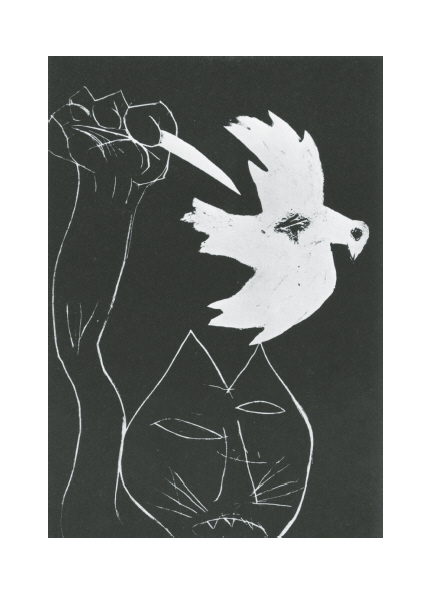
The Rascal King
The World According to Peter Drucker
Colossus (editor)
Pols (editor)
Age of Betrayal
Since the 1920s, successive generations of historians have produced stellar histories of the wars origins. I relied on the following: Winston S. Churchill, The World Crisis , vol. 1, 19111914 (London: Macmillan, 1923); Sidney Bradshaw Fay, The Origins of the World War , 2 vols. (New York: Macmillan, 1927); Luigi Albertini, The Origins of the War of 1914 , 3 vols. (New York: Enigma Books, 2005; originally published in 1952); Fritz Fischer, Germanys Aims in the First World War (New York: Norton, 1967), War of Illusions: German Policies from 1911 to 1914 (New York: Norton, 1975), and From Kaiserreich to Third Reich: Elements of Continuity in German History, 18711945 (London: Allen & Unwin, 1986); Imanuel Geiss, ed., July 1914: The Outbreak of the First World War (New York: Scribners, 1967); Hew Strachan, The First World War: Volume I: To Arms (New York: Oxford University Press, 2001) and The First World War (New York: Penguin Books, 2003); Richard F. Hamilton and Holger H. Herwig, eds., Decisions for War, 19141917 (New York: Cambridge University Press, 2003); and David Stevenson, Cataclysm: The First World War as Political Tragedy (New York: Basic Books, 2005).
For the causes listed above and a cogent argument that Franz Ferdinands assassination was a major cause of the war, see Richard Ned Lebow, Franz Ferdinand Found Alive, World War I Unnecessary, in Philip E. Tetlock, Richard Ned Lebow, and Geoffrey Parker, eds., Unmaking the West: What-if Scenarios That Rewrite World History (Ann Arbor: University of Michigan Press, 2006). I draw on Lebows paper in my account of Franz Ferdinands assassination in chapter 5. For a new generation of historians, see William Mulligan, The Origins of the First World War (New York: Cambridge University Press, 2010), 122. Also see Holger Afflerbach and David Stevenson, eds., An Improbable War? The Outbreak of World War I and European Political Culture before 1914 (New York: Berghahn Books, 2007) and Annika Mombauer, Review Article: The First World War: Inevitable, Avoidable, Improbable, Desirable, Recent Interpretations on War Guilt and the Wars Origins, German History 25, no. 1 (2007): 7895.
By the time these troops arrived in October, Peking was relieved and the war virtually over. To force the Chinese to sign a degrading peace treaty, the Germans conducted scores of punitive expeditions against Chinese villages, executing prisoners in batches of up to 175 and killing noncombatants who looked at them askance. See Isabel V. Hull, Absolute Destruction: Military Culture and the Practice of War (Ithaca: Cornell University Press, 2005), 14748. Hitler used the same word in the same sense in instructing his troops on how to conduct themselves in Russia. Eliciting his order was Stalins July 1941 call for partisan warfare against the Nazi invaders. Hitler, who saw partisan warfare as a chance to destroy potential opposition, reacted energetically Even before the invasion of the Soviet Union, Hitler had already relieved his soldiers of legal responsibility for actions taken against civilians. Now he wanted soldiers and police to kill anyone who even looks at us askance. Timothy Snyder, Bloodlands: Europe Between Hitler and Stalin (New York: Basic Books, 2010), 234.
As an index of bloody mindedness (and of French militarism), consider Le Matin s editorial response to Germanys unveiling of a statue commemorating the hundredth anniversary of the Battle of Leipzig in 1813: We celebrate neither Jena, where 40,000 French crushed 70,000 Prussians and captured 200 standards; nor Austerstadt, when 25,000 men under Davout vanquished 66,000 of Brunswick, nor Ltzen, nor Bauzen, where the Marie Louise Legion cut to pieces 15,000 of Blchers veterans We celebrate none of the 100 victories gained in Germany 100 years ago. Germans would do well to remember when celebrating the Battle of the Nations (so-called Leipzig) that only 157,000 French were, after a desperate struggle, finally thrown back by 350,000 of the allies. London Times , October 19, 1913.
The society of the Empire was shaped by the aristocracy, the officer corps, and the civil service, with the aristocratic officer of the guards regiments as the social model of all other classes. It was he whom the German bourgeoisie sought to emulate; its leadersparticularly the industrialists with newly-acquired wealthcopied the way of life of the aristocratic officer and frequently tried to join the ranks of the nobility. Fritz Fischer, War of Illusions: German Policies from 1911 to 1914 (New York: Norton, 1975), 13. The counterview is argued at length by the British scholar David Blackbourn in an essay titled The Discreet Charm of the Bourgeoisie, which includes these sentences: If one looks at nineteenth-century Europe it is difficult to identify an unambiguous instance in which the bourgeoisie ruled as a class It is even more difficult to find bourgeois revolutions of the supposedly classic type in any period. Blackbourn maintains that the bourgeoisie led a silent revolution in Germany, establishing their commercial values up and down the social scale. See David Blackbourn and Geoff Ely, The Peculiarities of German History: Bourgeois Society and Politics in Nineteenth-Century Germany (New York: Oxford University Press, 1984), 174.
June 1933 saw the Kpenick blood-week. After a young Social Democrat shot and killed three Nazi storm troopers, the brownshirts mobilized en masse and arrested more than five hundred local men, torturing them so brutally that ninety-one of them died. Richard J. Evans, The Third Reich in Power (New York: Penguin, 2005), 21.
This document, discovered and published after the Revolution, so accurately foretold the course of events that if its credentials were not impeccable one might well suspect it to be a post-1917 forgery. Richard Pipes, The Russian Revolution (New York: Alfred A. Knopf, 1991), 211.
Dull-witted and scared, an all-powerful nonentity, the prey of prejudices worthy of an Eskimo, the royal blood in his veins poisoned by all the vices of many generations, Nicholas Romanov, like many others of his profession, combined filthy sensuality with apathetic cruelty. Leon Trotsky, 1905 (New York: Random House, 1971), 135.
In negotiating the Franco-Russian Military Convention and treaty of January 1894, General Obruchev, Chief of the Russian General Staff, emphatically denied the possibility of a partial Russian mobilization against Austria [alone] on technical grounds and because, as he explained to his French counterpart, in making a partial mobilization we should expose ourselves to too great dangers with the menace of a rapid attack from Germany. The French wanted reassurance that Russia would not fight its own war against Austria-Hungary, leaving them to face Germany alone. L. C. F. Turner, The Russian Mobilization in 1914, Journal of Contemporary History 3, no. 1 (January 1968): 66.
Although Kokovtsovs is the only detailed description of these events, other accounts testify that such a measure was under consideration Diplomats in western Russia, and in the capital, reported rumors of a mobilization for the first two weeks of November. It was widely felt that military circles were pressing for a strong stand against an anticipated Austrian aggression on Serbia. David MacLaren McDonald, United Government and Foreign Policy in Russia 19001914 (Cambridge: Harvard University Press, 1992), 186. Interministerial conflict over resources also played a role in the mobilization. Sukhomlinov had exploited earlier war scares to pressure Kokovtsov to increase the military budget. Just a month earlier, Kokovtsov had refused his request for sixty-three million rubles to strengthen the defenses along the Austrian border. To get those rubles, he may have talked Nicholas into a mobilization, nearly topping his war scare with a war. See William C. Fuller Jr., Civil-Military Conflict in Imperial Russia, 18811914 (Princeton: Princeton University Press, 1985), 22324.
Next page












